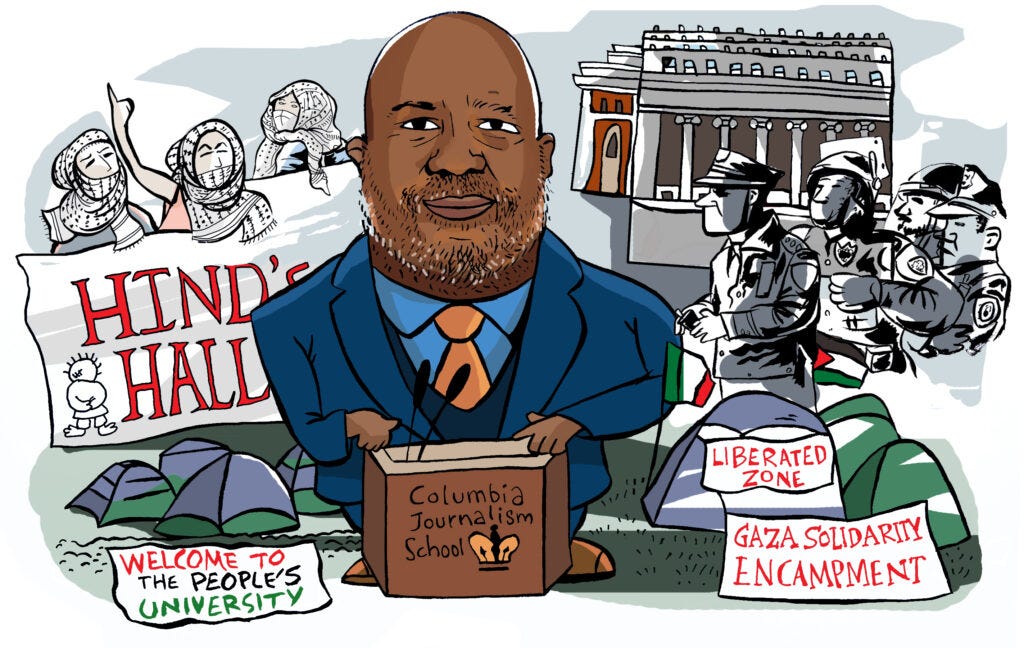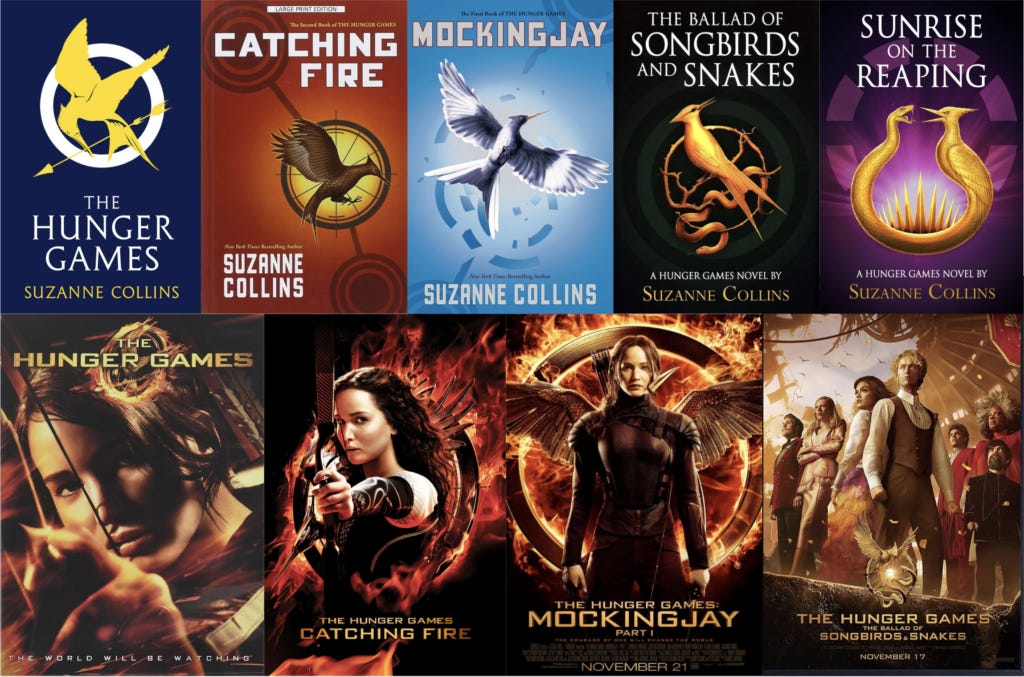Profiling the Dean of Columbia Journalism School and The Selective Politics of the Hunger Games’ Fandom
Culture reads from The Polis Project.
Here’s a round-up of reads from Polis Culture in the past week.
Everyone’s Looking at Jelani Cobb
When Jelani Cobb was appointed dean of one of the most prestigious journalism schools in the country three years ago, he couldn’t have predicted the storm of challenges that lay ahead.
It was 2022. The consequences of the pandemic lingered, public trust in the media—undermined by increasing political polarization and the rise of misinformation—had eroded, the future of the industry was uncertain, and tuition costs continued to rise. And while those challenges remained, by Cobb’s second year as dean, the ground had shifted.
In the fall of 2023, Israel escalated its genocidal assault on Gaza. At Columbia, an encampment was set up just outside the doors of the journalism school, calling for the university to divest from companies that “profit from Israeli apartheid, genocide and occupation in Palestine”.
One year later, the Trump administration began attacking higher education, undermining free speech, chilling academic freedom, and threatening funding by arguing that the university wasn’t acting to prevent “chaos and antisemitic harassment” on and near its campus.
And standing in front of the Columbia Journalism School—one of the institutions now in the spotlight—is its first Black dean: a writer and historian who has dedicated most of his career to the study of Black History and the coverage of civil rights.
One of his colleagues, Columbia professor and journalist Robe Imbriano, put it plainly: “Everyone is looking at him.”
How has Cobb navigated his roles at a time of roiling campus protests, institutional restrictions on his students' ability to report, the NYPD's on-campus violence, and the Trump administration's attack on higher education?
Read Sara Selva Ortiz’s in-depth, rigorously reported profile.
The Selective Politics of the Hunger Games’ Fandom
The titular Hunger Games are brutal gladiator-like fights to the death, produced for entertainment for the rich and out-of-touch citizens of the Capitol, devised by the extraordinarily cruel President Coriolanus Snow. Katniss’ story is one of rebellion and hope against a seemingly all-powerful enemy.
The story has resonated deeply for readers who have looked to Katniss as inspiration for change, as the series explores many relevant themes to our world—whether it is income inequality, authoritarian control, or the desensitization of the privileged to violence committed against those without.
The books and the films, all of which have been bestsellers and box office hits, have repeatedly inspired discourse about the importance of rebellion and resistance against authoritarianism.
But these analyses that assume that the U.S. will be where a revolution begins are reductive at best, delusional at worst. On TikTok and social media, the engagement with the Hunger Games’ commentary is reduced to aestheticized quotes or flashy fan edits, inhibiting meaningful discourse.
In this landscape, where the themes of revolution in the books have been reduced to an aesthetic or faulty comparisons, do we really need another Hunger Games to show us the cost of war on children and the pervasiveness of propaganda? What more is there for Suzanne Collins to say to a fandom that often misses the point?
Read Maryam Ahmad’s biting criticism of the Hunger Games’ fandom.
Thanks for reading us, and for your support. See you soon. Until then, take good care.






